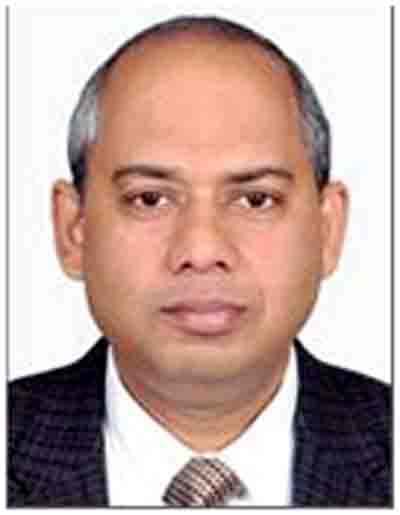Paper mills and gift authors fuelling academic fraud

GUEST COLUMN
 Onkar Singh
Onkar Singh
Most surprising is to receive communications from companies offering you to get assistance in doctoral and postgraduate degree level dissertation writing, main or co-authorship in research papers, owning joint national/international patents, etc. Of late the advertisements on social/digital media platforms for achieving academic excellence with innovative consulting solutions and expert guidance from commercial organisations have become ubiquitous. There are a good number of companies across the globe that approach students and teachers through phone, messages, emails, social media and other channels to provide paid support in writing theses, dissertations, projects and research papers for publication in journals to fulfill the requirements of higher degrees and enriching biodata.
As per ‘Global Ghostwriting Services Market Report 2024’ of Cognitive Market Research, the global ghostwriting services market is expected to grow at a CAGR of 6.80 per cent from 2023 to 2030. It underlines that the USA is the major player in ghostwriting catering to the business needs of numerous industries there. The report states that due to the rising demand, the Asia-Pacific region will be among the fastest-growing markets.
Assigning anyone’s name who has not contributed to a particular report or document as author/co-author is unethical. The practice of assigning dummy authors, which may also be called gift authors or guest authors might have been prevalent for long but its monetisation for livelihood of some needs to be curbed to retain trust in research and academic publishing. Ghostwriting practices generate revenue and result in the setting up of consulting firms as commercial entities called paper mills.
Ideally, the egregious act of getting one’s academic and research work done by someone on payment or other consideration/obligation and submitting it in one’s own name is forbidden and academics never approve it. However, the emboldening of paper mills and consultants for fearlessly canvassing as part of their business to create manuscripts, theses, dissertations, and research papers stipulates a deeper look into the genesis and flourishing of these practices.
Why are paper mills and gift authors thriving?
Indisputably, the paper mills and gift authors are being nurtured by its beneficiaries who could be either of the students, teachers, scientists, and professionals interested in strengthening their biodata for getting certain qualifications or due to race of publish or perish. These individuals aspire to get credentials devoid of their intellectual contributions in earning them. Introspection shows that since time immemorial, the academic systems have considered the presentations in examination answer books, project reports, thesis, dissertations, research papers, etc as the culmination of the learnings acquired by the respective students and assess them based on the documentary evidence. Accordingly, the design of the curriculum is done to allow learners to spend the requisite time and gain the desired knowledge before moving on to respective assessment tools. But the desperateness of individuals to succeed in earning higher qualifications or have research papers/reports/patents/copyrights in their name irrespective of having the abilities and knowledge drives them towards immoral and untruthful practices. Incompetencies ridden with a desire to decorate testimonials are at the core of ghostwriting. The recognitions secured through enriched profiles though deceptive, motivate many to procure ghost writings. Encouragement of collaborations though intended to share knowledge and use collective wisdom for worthy outcomes of multiple authors is also an enabler for ghostwriting.
The presence of digital platforms, ease of access to content, mutual benefit, free marketplace, etc are also encouraging paid writing business. The availability of knowledgeable and competent persons from academics and other domains with the potential to be ghostwriters on payment or seek favour is powering the paper mills. Further, the assessment attributes of the ranking and accreditation frameworks having significant consideration of research and development outcomes, patents, copyrights, PhD supervision, etc also prompt the institutions to score best on these metrics. It in turn sets compelling circumstances for teachers to look for all possible ways to score well either through genuine or ingenuine routes. Also, the degeneration in moral values and impatience for accomplishments in the individuals lead to a congenial environment for paper mills, ghostwriters and gift authorship.
To sum up, the freelancer’s desire to make money from their intellectual capabilities/experience/understanding and the aspirations of the unfit to earn higher qualifications and strengthen academic/research credentials for any purpose propels the fast-growing menace of paper mills and gift authorships.
How to curb paper mills and gift authorships?
The nefarious manipulations to get degrees/diplomas/certificates/research papers/reports/patents or other things to get decorated with either qualifications or research outcomes by ghostwriting vociferate urgent interventions to curb them. Although it is very difficult to stop it completely because of the mutual benefit of the testimonials to gift authors and monetary gain to ghostwriters and paper mills, nevertheless, multifaceted attempts must be made to stop unlawful claimants. Strategies must include a focus on ethical reforms, institutional policies, social perception, and individual character. Authorship guidelines must be embedded with the meticulous criteria for authorship with signed declarations about specific contributions of authors. The provisions for imposing stringent sanctions and penalties on being caught as part of a paper mill or guest author or ghostwriter ought to be put in the crime category through laws. Besides the stringent peer review to figure out the content created by paper mills or ghostwriters and detecting plagiarism through suitably developed AI-based tools/software may be of help. Educational and research institutions must hold sensitisation training and workshops for emphasising the importance and honesty in authorship and implications of unfair practices in authorships. Counselling services for assisted writing will inculcate learning tendencies and foster a culture of authenticity and originality for quick success. Also, ethical academics and researchers must mentor the young generation, collaborate with them, and only recognise collaborations with due contributions will discourage resorting to shortcuts. De-emphasising the quantity over quality of publications and academic submissions will be self-corrective and dispirit those tempted by paper mills. The post-publication review mechanism may also be thought of for identifying suspicious authorships and blacklisting the evil operators along with its wide publicity in open media will act as a deterrent. Social dejection is likely to play a key role in the self-correction of perilous intellectual dishonesty and nasty means of progression.
Looking upon the organised and systemic expansion of paper mills, guest authorship and ghostwriters, the concerted efforts of countries across the world to establish an ethics code and strategize creating awareness about the risks associated with these practices, shutting down companies and punishing individuals selling the papers for academic and professional credit is inevitable. A universally acceptable legal framework with severe consequences for both seller and buyer is essentially required to prevent the proliferation of paper mills, guest authors and ghostwriters.
Given the above, the regulatory bodies, institutions, organisations, academics, the scientific community, and government must deliberate and evolve strategies to get rid of paper mills and guest authorship.
(The author is the vice chancellor of Veer Madho Singh Bhandari Uttarakhand Technical University. Views expressed are personal)






